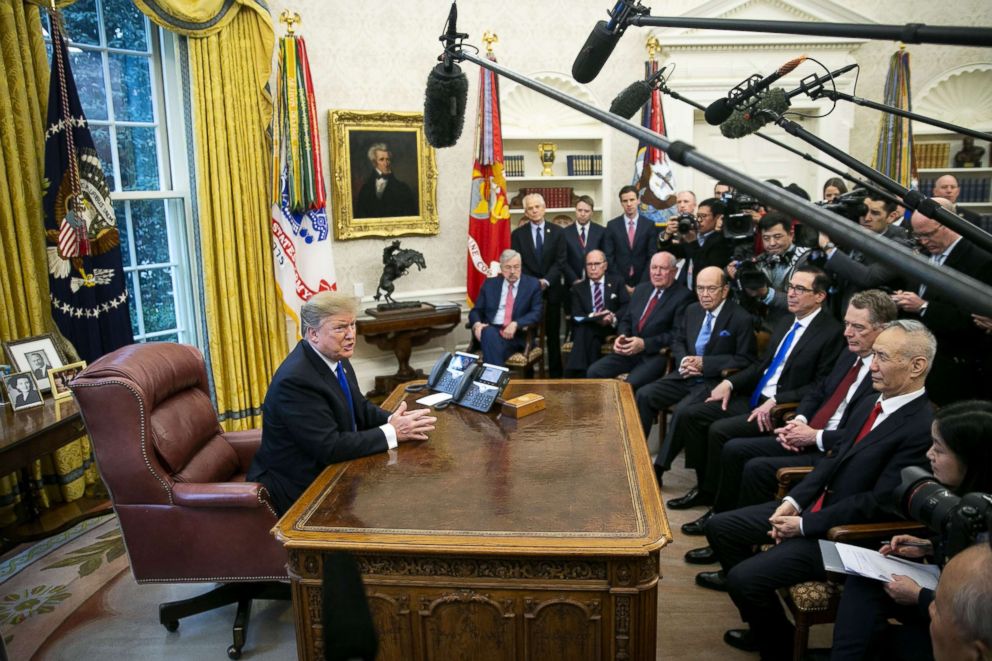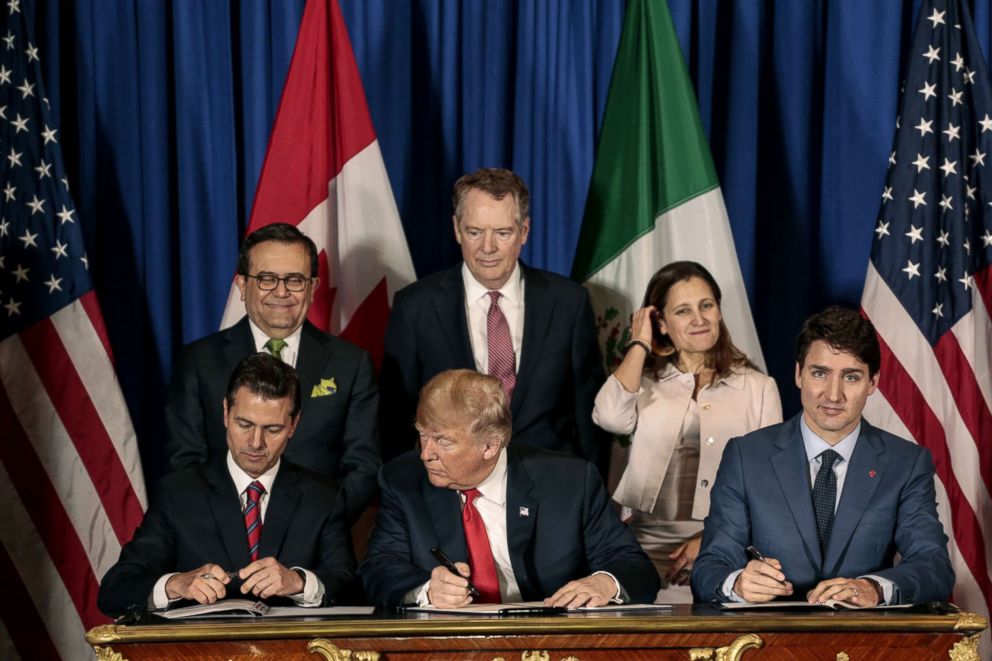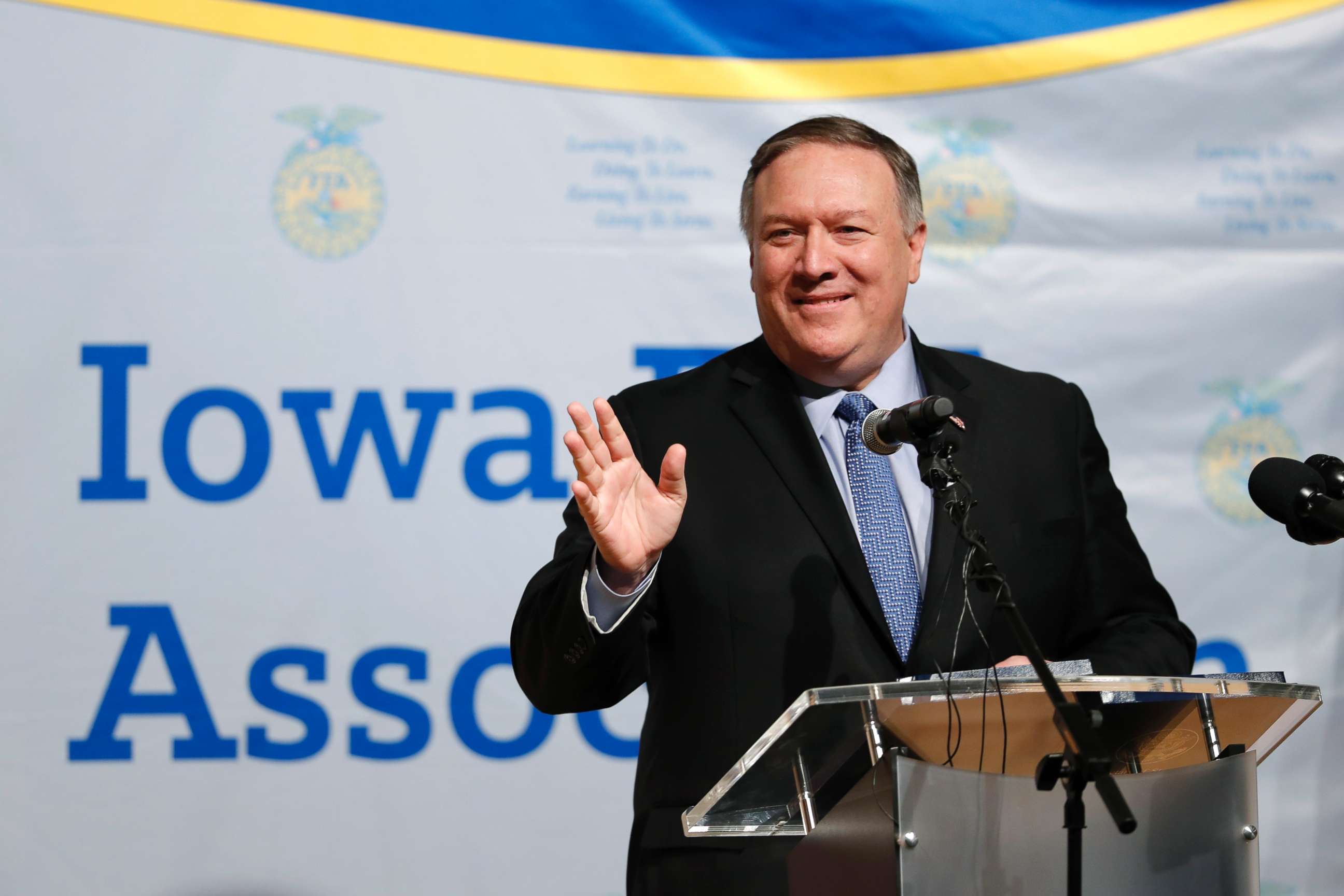Pompeo takes heat from Iowa farmers hit by Trump's trade wars in trip to rally president's support
The top U.S. diplomat took an unusual, if not controversial, trip to Iowa.
Amid the steady parade of Democratic presidential contenders streaming through Iowa -- the country's first battleground in the presidential election -- there was another, more unusual visitor there on Monday: Secretary of State Mike Pompeo.
The top U.S. diplomat took a day-and-a-half trip to Iowa to rally support from U.S. farmers for President Donald Trump's trade wars, as farmers have been hit hard by tariffs from China, Mexico, and elsewhere that have restricted their sales and slumped profits.
While he was there to talk trade and encourage Midwesterners to join the State Department, he said, the trip faced criticism for its seemingly political nature amid the early politicking of the 2020 presidential race -- something Pompeo fiercely disputed.
"That's a ridiculous statement," he told USA Today in a contentious interview.
Traveling with Iowa's favorite son, the state's former six-term governor and now U.S. Ambassador to China Terry Branstad, Pompeo also faced tough questions from Iowa high school students who pressed him on the Trump administration's policies regarding climate change, human rights, and support for the Saudi-led coalition's war in Yemen.

"I do think maybe they're tending the store," Craig Robinson, editor of The Iowa Republican told the Washington Examiner. "It calms the fears down because you do have Democrats in the state, left and right now, talking about how bad Trump's trade policies are for Iowa farmers, so I think this is to combat that and to help make sure that he keeps that rural support he's enjoyed in the state."
But farmers made clear to Pompeo the pain of those foreign tariffs that have remained in place as U.S.-China trade talks drag on over other issues, like China's intellectual property theft and subsidies for their companies. While the U.S. and China are "on the cusp" of a deal, Pompeo said Monday, farmers pressed him for why tariffs couldn't be lifted in the meantime.
"We're still dealing with retaliatory tariffs, not only from China but also from Mexico ... We've really taken a double whammy," one man told Pompeo at the Iowa Farm Bureau Monday. Several of them also urged a quick passage of the NAFTA reboot known as U.S. Mexico Canada Agreement, or USMCA, that Trump signed alongside Canadian Prime Minister Justin Trudeau and Mexico's former President Enrique Peña Nieto in November.
Trying to rally support for the president's fight, Pompeo argued those other issues are key to protecting the agricultural industry too and in the long-run will secure a level playing field for all American businesses.

But pressed for answers by the group, Pompeo repeatedly sidestepped questions: When will there be a resolution? He would not want to put a timetable on it. Why not have both sides drop tariffs while other issues are worked out? He didn't want to get ahead of the negotiating team. What about agreements with Japan, Vietnam, others? The administration is working on them all. Is there a "Plan B" to sell goods somewhere other than China? There'd been "lots of ideas floated," he said, but no "concrete solution" yet.
Still, Pompeo was well-received -- playing up his Kansas roots and cracking jokes. Shorter on details, he offered the administration's sympathy and support for farmers instead: "We're deeply aware of these retaliatory tariff issues ... Know that they're in the front of our mind, and we're working our way to put America in a place where our businesses don't suffer them.”
Optimistic that a deal with China could be reached soon, he said the biggest sticking point still is finding a way to make any agreement enforceable: "We're trying to make original mistakes, not repeat the past ones. We're trying to make sure we don't fall for the same trap that American trade negotiators have done so many times."
But while the farmers largely seemed to let him off the hook, Pompeo was also politely pressed for answers by an unlikely group: High school students.
Speaking to the Future Farmers of America, he was confronted twice over the Trump administration's position on climate change. Pompeo defended their record, in particular, the decision to withdraw from the Paris climate accord by saying it "was going to cost you all, people here in Iowa, an awful lot of money, and, in our judgment, not do hardly any good for the environment."
While regulations incur short-term costs, the Government Accountability Office issued a report in late 2017 that found not dealing with climate change will impose increasingly higher costs on the U.S. government, from premature deaths due to extreme temperatures to damage from more powerful storms.

"It just doesn't make any sense to put rules in place that don't actually achieve those outcomes," Pompeo told a second student, although the reduction in U.S. emissions, cited by the Trump administration as a success, have been largely because of Obama-era regulations.
Another student pressed Pompeo on why the U.S. left the U.N. Human Rights Council, while one asked: "I was just wondering, how do you justify sending weapons to Saudi Arabia when you know the effect on Yemeni citizens who are being harmed by the bombing of Yemen?"
"If the Iranians had provided missiles to a group that was launching weapon systems into Des Moines, I am confident you would demand that your government stand up and push back against that, in the same way the Saudi government is pushing back against that," Pompeo responded in part.
The students even managed to make a bit of news: In response to a question on how to negotiate, Pompeo praised the progress in U.S.-Taliban talks and said he hopes they make "enough progress I can travel there in a couple weeks and help move it along a little bit myself."




